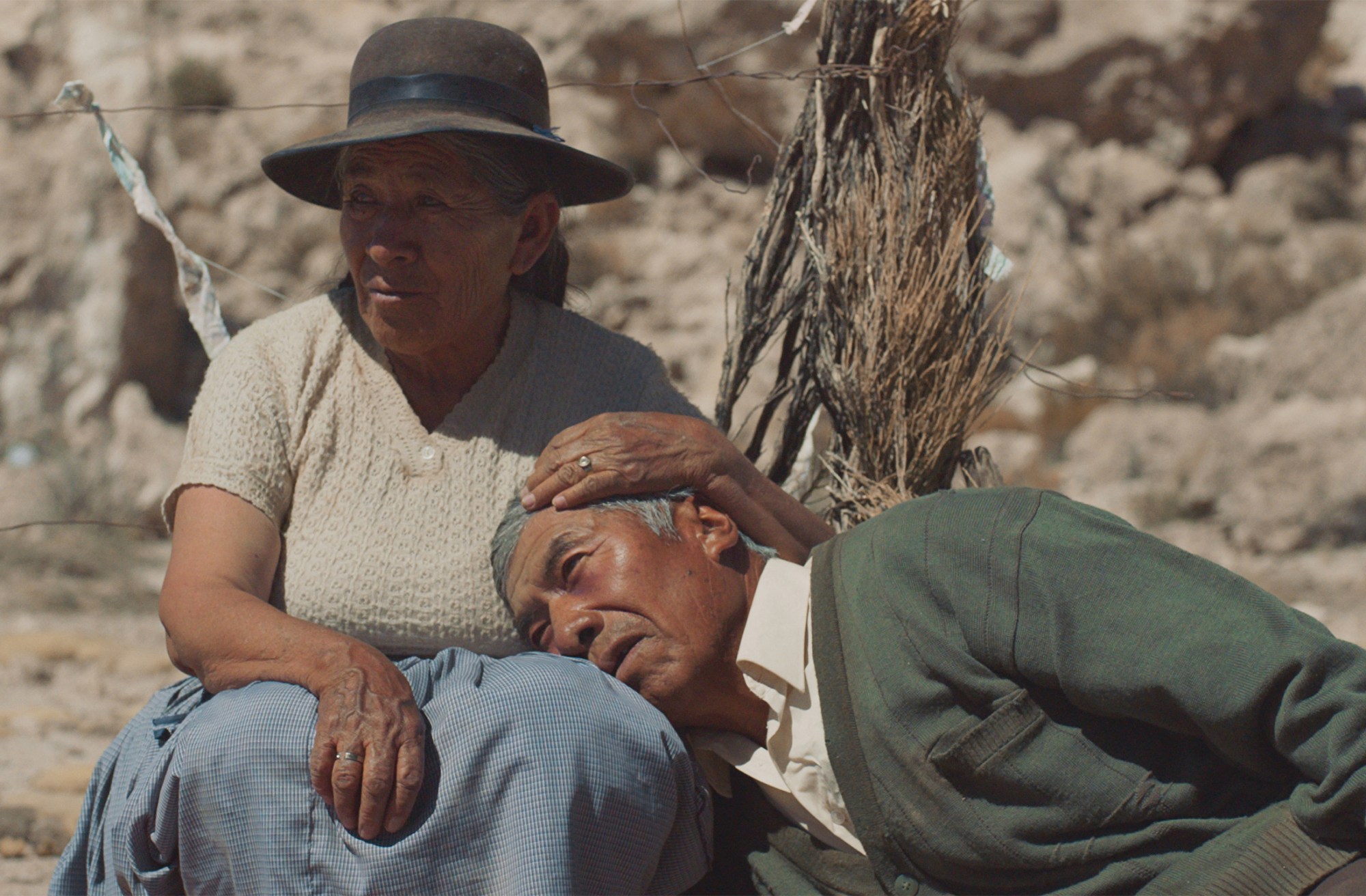
- Festivals
The Questioning Silence of “Utama”
She wears a skirt that reaches to her knees, her long braids are tied together, and she walks swiftly; he is small in stature like her, his skin is carved by wrinkles, but his eyes are sharp and vibrant, hawk-like. Their llamas are marked by cute, pink tufts on their horns.
Strong-willed characters in cinema often make for good stories, yet there is something genuinely heartbreaking about characters who don’t will but just are – innocent and trusting like children. And like children, Sisa and Virginio feel infinitely connected to their mother; mother-nature.
They live on a desert expanse somewhere in the Bolivian highlands. Their adobe little house is snugged among boulders, next to a fenced sandy patch for the llamas, the Andes looming in the distance. Virginio takes the llamas out to graze. Sisa gently combs her hair in front of a piece of mirror hung on the mud wall.
Everything would go unchanging like it has been in their long lives if it weren’t for a stubborn drought. The well in the nearby village is empty, and the only source of water left is a shallow stream that runs through the cracked earth.
Sisa seeks Virginio’s help to carry the heavy buckets all the way from the stream. He quietly refuses – fetching water is her job, not his. Herding the llamas is hard as it is. And his health is failing him – a persistent cough won’t go away. Sisa does not insist.
The sudden arrival of their grandson, Clever, stirs a little liveliness into their daily routine, albeit causing mixed feelings – joy in Sisa and apprehension in Virginio. It’s unclear why Virginio is not happy to see him, except that it has something to do with the decision of his son, and therefore his grandson, to live in the city.
This time, Clever has returned in order to make another attempt at convincing them to leave the farm. Good judgment is on his side: his grandparents are old and worn out. Though he does not admit it, Virginio’s illness is getting worse, the llamas have begun to die from thirst, there’s hardly any water, hardly any food.
When it feels death approaching, Virginio says, the condor flies to the top of the mountain, folds its wings, and dives down headfirst. It dies in the lap of mother earth. Like the condor, Virginio refuses to abandon her.
Sisa’s and Virginio’s suffering is silent. They are not unsettled by anger, fear, disappointment. They are only wondering. Wondering what to do so that their lives might end the way they’re supposed to. Honorably. Like the condors.
Alejandro Loayza Grisi, the young writer-director, got inspired to make Utama when he was traveling throughout Bolivia with his father and brother, working on a documentary series about the effects of climate change. His indigenous actors, Luisa Quispe (Sisa) and José Calcina (Virginio), were discovered in the village where the film was shot, between the Uyuni Salt and Atacama deserts.
In the virtual Q&A after Utama’s premiere at Sundance, Grisi told the audience that he wanted to show “a reality very close to us and very real, we’re not paying attention [to], and we’re not receiving the messages.”
“It’s amazing how we’re ignoring [the climate crisis],” he went on. “In the cities, we are very comfortable. We go to a supermarket to buy food. We go to the kitchen, and we have water. We can have a 10-minute shower and that’s no problem. But if you drive a couple of hours, then you find people that are having consequences from the climate change.”
“If we do not do something very quick, we’re going to have a lot of people in the situation of Virginio and Sisa,” Grisi warned.
The film got the Grand Jury Prize in the World Cinema Dramatic Competition.

